Decadentheartflower - A Studyblr Like You.

More Posts from Decadentheartflower and Others
How to be good at interviews:
I’m having next Wednesday my first professional interview (eeeeek) so I decided to share the research I’m doing. I googled all of this and chose the information I found most important, and organized it. I truly hope it’s helpful for someone out there :)
PLAN AND PRACTICE:
always do your homework: learn about the organization, its ideas and story
don’t necessarily memorize responses, but try to have a planned general strategy for answering common interview questions
practice in front of the mirror
be ready to briefly describe related experience
compare your qualifications to what the organization wants from you
COMMON INTERVIEW QUESTIONS:
“What’s your biggest weakness?” Think of a genuine issue you have as well as ways you have managed to work with/around it.
“What’s your biggest strengths?” Stand out from the crowd and don’t be afraid to speak about your strengths in an authentic and compelling way. See if your strengths align with the company’s needs.
“ Why do you want this job?”/ “Why should we hire you?” Stay focused on why your background makes you an ideal candidate and tell them how you are going to contribute to that department and that company.
“Tell me about yourself.” Don’t tell them your life story, instead discuss what your interests are relating to the job and why your background makes you a great candidate.
“Why did you leave your last job/position/school?” Do not go into details about your dissatisfaction, tell them that while you valued the experience and education you received, you felt that the time had come to seek outo a new opportunity, expand your skills and knowledge, and to find a company with wich you could grow. Try to put a positive spin on things. Be honest if you were fired but don’t trash your previous boss.
“Where do you see yourself in five years?” Be honest about what your greater aspirations are.
And much much much more (from your behaviour to work experiences, education, interests and motivation or problems and challeges you’ve faced previously), I would encourage you to try to write down some topics for each questions that work for you. Being prepared is everything.
THE DAY OF THE INTERVIEW:
sleep and eat well so you look rested and healthy on the big day
give yourself time to calm down/meditate/relax
don’t noodle around on your phone or electronic device while waiting - it may communicate boredom and frivolousness, maybe stick your notebook/notes
What to wear: normally it’s best to dress neutral, professionally/formal, not overly fashionable or trendy, and brightly colored clothing is bad. Make sure your clothes are neat and wrinkle free, and make sure your image is very clean and neat.
What to bring: if revelant, extra copies of your resume on quality paper, a notepad or professional binder and pen, information you might need to complete an application.
IMPORTANT TIPS:
make eye contact
show courtesy to everyone during the interview, this means everyone from the reception staff to the interviewer herself
smile
have good posture
avoid fidgeting too much or playing with your hair/touching face
have a good handshake
don’t cross your arms over your chest
walk, act, talk with confidence
be comfortable and relaxed
choose the words you say
don’t place stuff on their desk
manage your reactions - facial and body expressions give clues on how you feel: project a positive image
show interest and enthusiasm
show warmth and personality - being personable is about getting the interviewer’s emotional side to like you and believe in you
don’t lie to make it seem like you know something you don’t. You probably won’t fool your interviewer, and admitting to not know something is much more impressive than lying
be honest
keep things simple and short, talk in 30-90 second chunks. Any less and you’re likely to seem unqualified; any more and your interviewer is likely to lose interest in what you’re saying
THINK OF QUESTIONS TO ASK: participating actively during the interview gives a good impression of your level of interest in the job. Most of times it is more adequeate to ask in the end of the interview. But I feel like you really need to make sure your questions are adequate. Examples:
“What types of training opportunities do you offer?”
“What are the chances for professional growth in this job opportunity?”
“Is there anything else I can provide you with that would be helpful?”
ALWAYS ask the “ When can I expect to hear back from you about the position?” question if the interviewer does not tell you.
Good questions are open-ended, and thus cannot be answered with a “yes” or “no.” Better questions are behavioral: they ask how things are done or have happened in the past, because current and past behavior is the best predictor of future behavior.
AFTER THE INTERVIEW:
shake hands with the interviewer - try to invest some feeling into the handshake and pleasantries, even if you think you bombed the interview
hold your head high and keep your cool
your emotions are probably teetering at the highest of highs or the lowest of lows, but try to stay measured
project a cool confidence, not cockiness, and walk out of the interview with your head held high
SOMETHING TO ALWAYS KEEP IN MIND:
when you know in your heart and your gut that you bring to the table something just as valuable as a paycheck and maybe much more – your tremendous experience, intellect and instinct – you’ll carry yourself differently. You won’t trip over your words in an effort to please His Majesty or Her Highness, because you’ll see yourself and the interviewer as equals on a level playing field.
you are valuable and unique. You have something very special in you and you deserve to be given a chance. good luck!
me to other people: ur self-worth should not be defined by ur grades!
me to myself: if u don’t get a 107 on this assignment ur dead to me

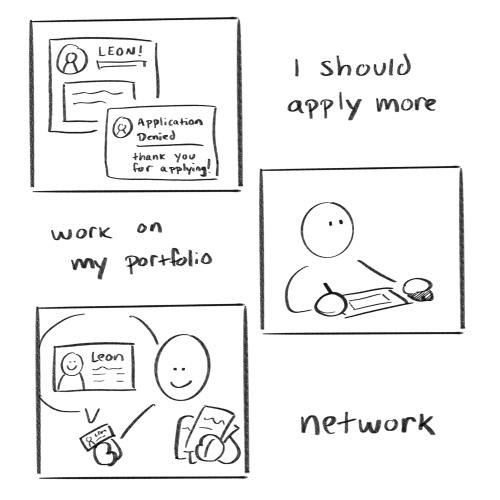
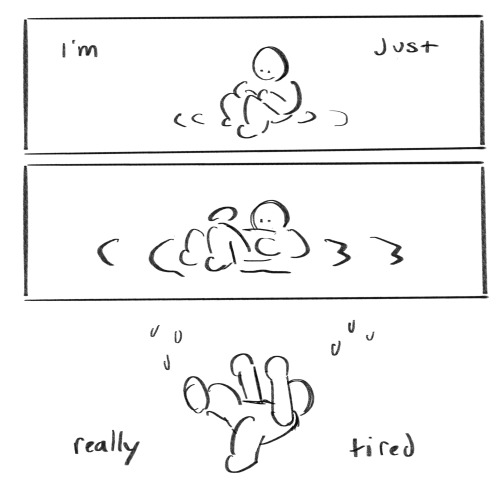
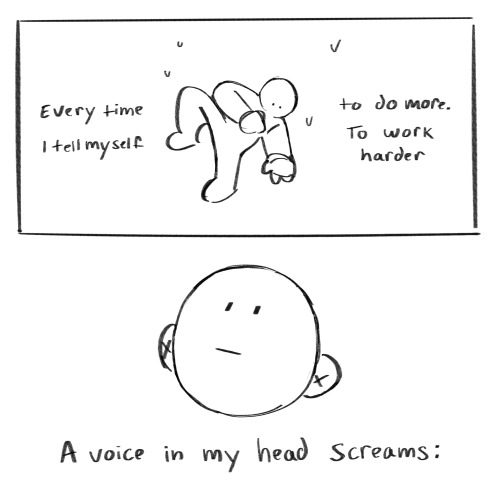
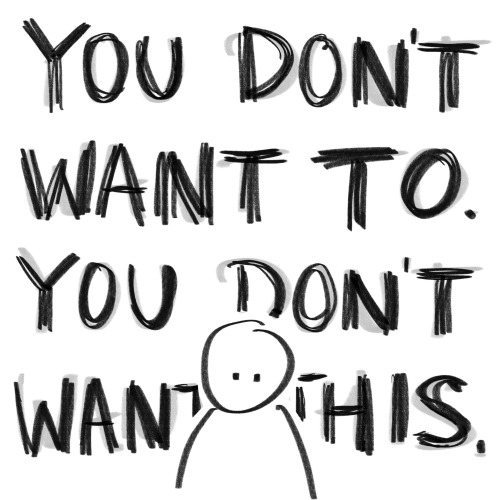
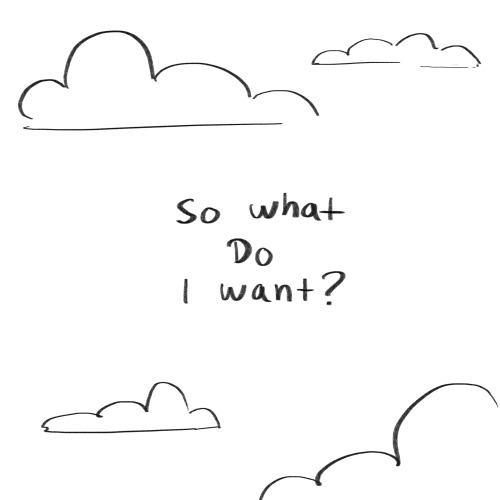
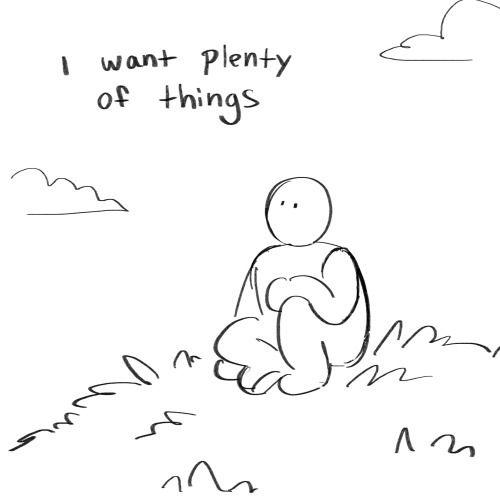
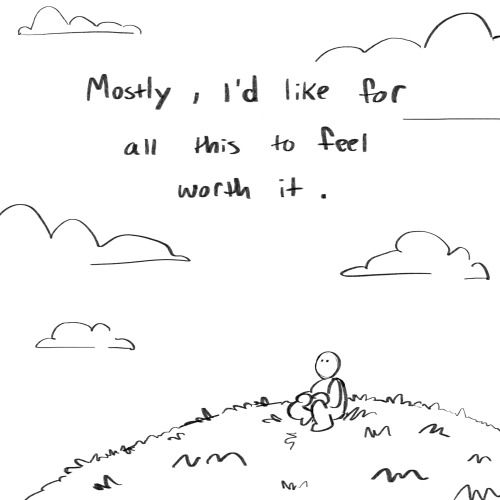
“I don’t know what my goals are, no. Thanks for asking.”

Your #ThursdayPickup! Too many of us spend a lot of time whining and groaning about oh so many difficulties and worries. Here’s what to do instead: roll up ‘em sleeves, get yo’ mindset strong and firm and plunge yourself into glory. Remember, pain is temporary, glory is eternal. Peace. <3
The 5 Best Revisions Methods I Want to Start Using
Hi, guys! Whilst planning my next few months to do well on my final exams, I started researching and found a few great study techniques that are a bit underrated. Thus, I compiled a post with information about each one and all the materials you need to put them to use. These are most useful if you’ve already studied the material and are now starting to revise.
A. Feynman Technique
This method was coined by Nobel Prize winner Richard Feynman. This system works by writing down everything you remember about the topic you’re currently revising in a blank piece of paper. When you get stuck, go back to your study materials. The gaps in your knowledge should be blatant after you finish. Review and simplify. Keep repeating until you know for certain that there’s nothing left out and you’ve successfully learned the topic. :-)
For this method you will need:
Blank piece of paper
Pen/Pencil
B. Spaced Repetition
This method has been gaining traction for the past few years but it still doesn’t get the recognition it should. It’s fairly simple. It consists of time intervals between study sessions, which allows you store information better in your long-term memory. While there aren’t set times for when to do your next revision session, I’d recommend the one by Piotr Wozniak:
First repetition: 1 day
Second repetition: 7 days
Third repetition: 16 days
Fourth repetition: 35 days
This method can be used both through an analog system and a digital one.
One of the simplest techniques to implement spaced repetition while using paper flashcards is the Leitner system. First, you decide how many boxes you need for your system. Each of your boxes represents a different study time interval:

Every flashcard starts out in Box 1. When you get a flashcard right, it passes to the next box. If you get a card wrong, it goes back to Box 1 – even if it was on Box 4. This makes sure you are constantly reviewing the materials. Remember to devise a calendar with the dates and boxes you need to revise each day.
For this method you will need:
Boxes or simply different colored rubbers to differentiate the piles
Flashcards
Pen/Pencil
If however, you prefer a digital method, Anki is the best option for you. It is available online, on both Windows & Mac and there’s also an incredible practical app. It uses the spaced repetition method while taking the trouble of having to hand write hundreds of flashcards and remembering when to study each one.
Simply create an account, then a deck in which you’ll add your flashcards. The app and website allow you to add images and/or sounds to the flashcards. Customize them all you want. Once you’ve finished, save them and check the app every day to revise the flashcards of the day.
For this method you will need:
Anki app (iOS, Android) and/or website
C. Past Papers
I’ve been guilty in the past for not using this method. I got so caught up in my perfectionism that I didn’t even want to try. I learned, though, that getting things wrong is not a sign of failure and that persisting until you get it right is the real strength (and discipline) you ought to have. Do not let your procrastination and/or perfectionism prevent you from learning your weaknesses on a topic and not reach the grade you were hoping for.
Time yourself while taking the test and then correct your answers with a different colored pencil/pen so you can differentiate between correct and wrong answers.
For this method you will need:
Past papers
Pen/Pencil
D. Teach someone
This method is really helpful if you have oral assessments and/or your professor uses the Socratic method in class. You can practice your speech and knowledge all at the same time. Find someone who’s willing to listen to you talk about the topic you’re studying. Even if no one’s willing, you can still explain the matter to an object in the house. Don’t get embarrassed by this! While speaking, you’re organising your thoughts and only when explaining to someone else can you really assess your knowledge.
For this method you will need:
Your voice
Someone/Something who loves you very much
E. Proper sleep & exercise
Yes, I know, these aren’t revisions methods. But as helpful as the previous systems were, they won’t work if you aren’t sane in body and spirit. It’s incredibly important that you rest. Teenagers (13 to 17 years old) ought to sleep from 8 to 10 hours every day, while young adults (18 to 25) only need 7 to 9. You should also get fresh air and exercise. This helps with mental alertness, concentration, an efficient memory and a positive mood. Stay hydrated throughout the day. & please, don’t skip meals!
For this method you will need:
Proper sleep (x, x, x, x, x)
Exercise (x, x, x)
Healthy diet (x, x, x, x)
2018 will be the year of studying hard, finding love, meeting new people, trying new experiences, self love, ice creams and long beach days in summer, jumping in leaf piles and making carrot cake in autumn, wearing comfy warm coats in winter, picnics and flower gardens and bike rides in spring, learning to live with the scars from previous years, growing as a person in every way, being kind despite having bad days, high ambitions and consistency, not giving up on goals after 2 days, leaving habitual toxic thoughts behind, and determination to make 2018 different and happier and more productive than 2013-2017.


Pretty lights and my little garden✨
-
 hirathena liked this · 3 years ago
hirathena liked this · 3 years ago -
 callit-hyunj liked this · 4 years ago
callit-hyunj liked this · 4 years ago -
 tulica4 liked this · 4 years ago
tulica4 liked this · 4 years ago -
 luvlikoos liked this · 4 years ago
luvlikoos liked this · 4 years ago -
 becomingthedreamversionofme reblogged this · 4 years ago
becomingthedreamversionofme reblogged this · 4 years ago -
 becomingthedreamversionofme liked this · 4 years ago
becomingthedreamversionofme liked this · 4 years ago -
 leyla-syed liked this · 4 years ago
leyla-syed liked this · 4 years ago -
 caffeineandbooks reblogged this · 4 years ago
caffeineandbooks reblogged this · 4 years ago -
 despairloneliness2am liked this · 4 years ago
despairloneliness2am liked this · 4 years ago -
 sunshine-and-sweet-dreams reblogged this · 4 years ago
sunshine-and-sweet-dreams reblogged this · 4 years ago -
 studyblrco reblogged this · 5 years ago
studyblrco reblogged this · 5 years ago -
 notyourbusiness56-blog liked this · 5 years ago
notyourbusiness56-blog liked this · 5 years ago -
 avviosa liked this · 5 years ago
avviosa liked this · 5 years ago -
 audaciousgirl16 liked this · 5 years ago
audaciousgirl16 liked this · 5 years ago -
 cherryscardan reblogged this · 5 years ago
cherryscardan reblogged this · 5 years ago -
 cherryscardan liked this · 5 years ago
cherryscardan liked this · 5 years ago -
 a-freaking-phoenix liked this · 5 years ago
a-freaking-phoenix liked this · 5 years ago -
 1d-hp-trash liked this · 5 years ago
1d-hp-trash liked this · 5 years ago -
 ravenclaw-ft liked this · 5 years ago
ravenclaw-ft liked this · 5 years ago -
 heyitsalison liked this · 5 years ago
heyitsalison liked this · 5 years ago -
 padfoot-ish liked this · 5 years ago
padfoot-ish liked this · 5 years ago -
 iwishiwereasleep liked this · 5 years ago
iwishiwereasleep liked this · 5 years ago -
 sugarspiceandallthatrandomish reblogged this · 5 years ago
sugarspiceandallthatrandomish reblogged this · 5 years ago -
 katie-with-the-tea liked this · 5 years ago
katie-with-the-tea liked this · 5 years ago -
 cattemooncakes reblogged this · 5 years ago
cattemooncakes reblogged this · 5 years ago -
 cattemooncakes liked this · 5 years ago
cattemooncakes liked this · 5 years ago -
 voughno liked this · 5 years ago
voughno liked this · 5 years ago -
 auberosier liked this · 5 years ago
auberosier liked this · 5 years ago -
 mountainwalksandoceansunsets reblogged this · 5 years ago
mountainwalksandoceansunsets reblogged this · 5 years ago -
 herefornewideas liked this · 5 years ago
herefornewideas liked this · 5 years ago -
 booksbeatromance liked this · 5 years ago
booksbeatromance liked this · 5 years ago -
 azureshine liked this · 5 years ago
azureshine liked this · 5 years ago -
 reach-for-the-horizon reblogged this · 5 years ago
reach-for-the-horizon reblogged this · 5 years ago -
 reach-for-the-horizon liked this · 5 years ago
reach-for-the-horizon liked this · 5 years ago -
 transaurus liked this · 5 years ago
transaurus liked this · 5 years ago -
 instantlysporadiccupcake liked this · 5 years ago
instantlysporadiccupcake liked this · 5 years ago -
 blitheringmcgonagall reblogged this · 5 years ago
blitheringmcgonagall reblogged this · 5 years ago -
 blitheringmcgonagall liked this · 5 years ago
blitheringmcgonagall liked this · 5 years ago -
 rileyha liked this · 5 years ago
rileyha liked this · 5 years ago -
 doublesmash liked this · 5 years ago
doublesmash liked this · 5 years ago


